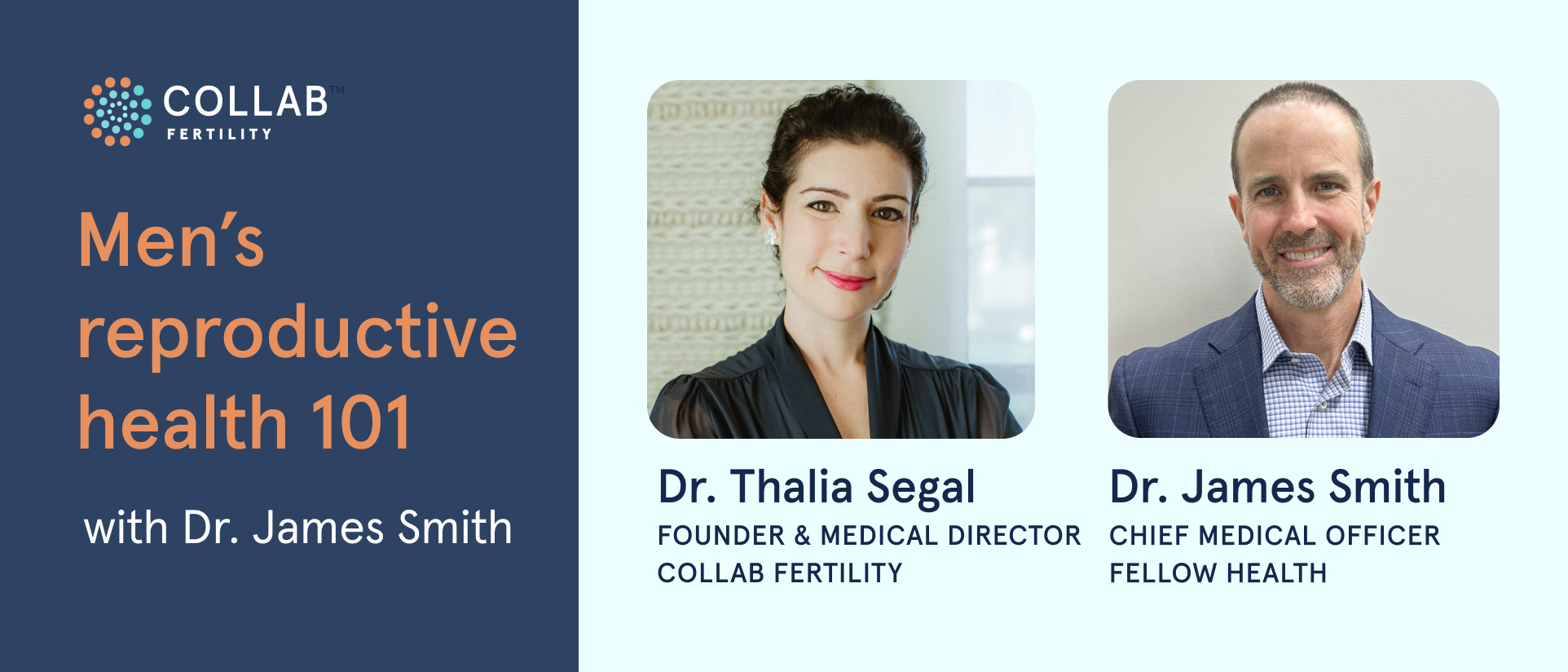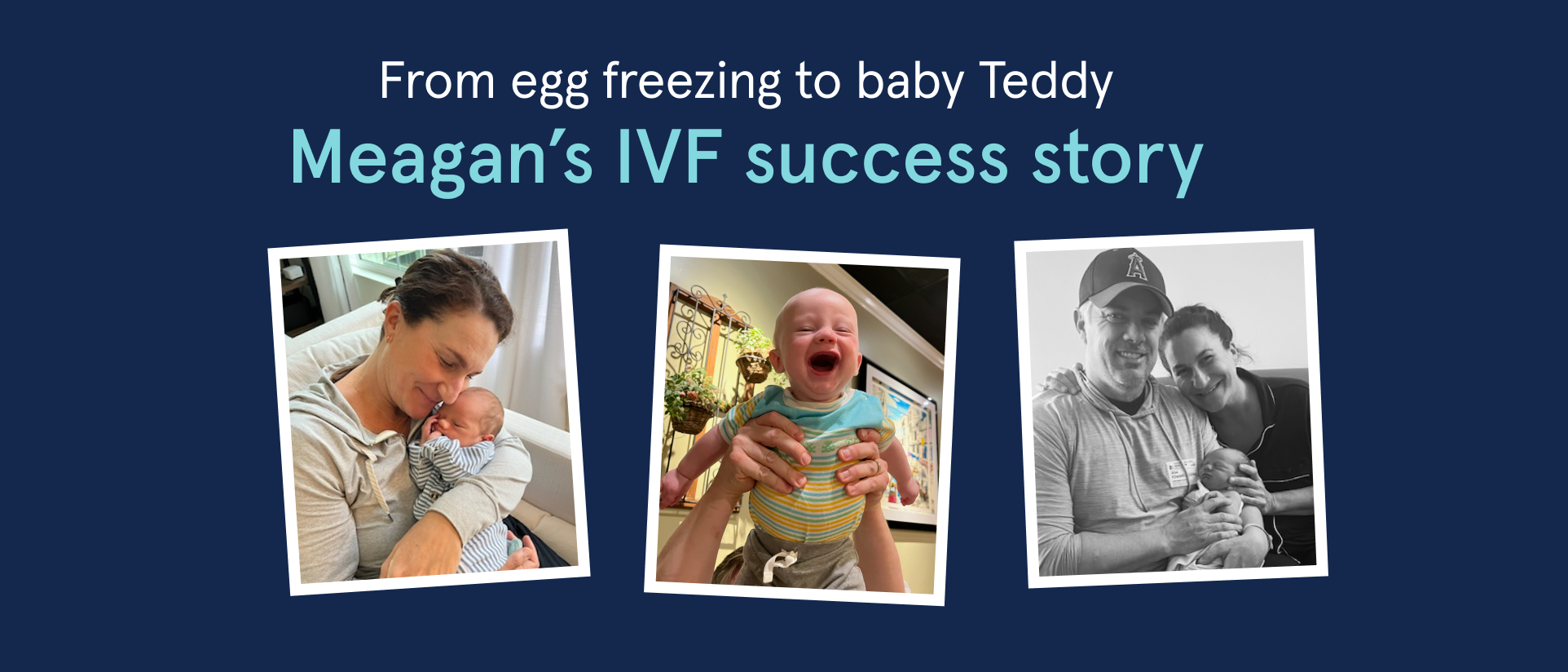
How supplements help with fertility—A Q&A with Mimi Huang, RD
Are you overwhelmed by all the fertility supplements out there? Are you unsure which ones actually work?
At Collab Fertility, we believe nutrition is a powerful foundation for reproductive health. Through The Collab Way, our integrative approach to whole-person care, every patient receives personalized nutrition and supplement guidance from our in-house Registered Dietitian Nutritionist, Mimi Huang, RD.
In this Q&A, Mimi answers your most pressing questions about fertility supplements: how they work, which ones may help, and why a tailored approach makes all the difference. (Catch up on our first Q&A with Mimi here.)
How long do supplements take to work for fertility? What’s the ideal time to start supplements before pregnancy?
Mimi Huang:
Sperm maturation and egg development each take about three months, which is why it’s ideal to begin making positive lifestyle changes, including starting supplements, at least three months before trying to conceive. While it can also take three months for diet changes and supplements to reach their full effect, your reproductive system is always in motion. So, once you start fueling your body with the right nutrients, you’re already making a positive impact.
What are some of the best supplements for female fertility?
Mimi Huang:
I always say food first, but supplements can help fill in the gaps or provide therapeutic support. These are some of the top ones I recommend:
Folic Acid
Folic Acid is the most important supplement for fertility. Mimi recommends at least 800 micrograms daily for anyone trying to conceive. It not only helps prevent neural tube defects but has also been linked to better IVF outcomes and higher live birth rates.
CoQ10
A powerful antioxidant that helps protect egg quality, especially in women over 35. It helps counteract the natural decline in egg quality due to age and environmental toxins.
Omega-3s
If you’re not eating fish regularly, an omega-3 supplement can support hormone balance and reduce inflammation.
Vitamin D
This one helps with hormone regulation and egg quality, but it’s a fat-soluble vitamin. Mimi recommends testing your levels first before supplementing.
NAC (N-acetylcysteine)
Another strong antioxidant that supports cellular energy and egg health by nourishing the follicular fluid in the ovaries.
Inositol For patients with PCOS, Mimi recommends a balance of myo-inositol and D-chiro-inositol. It can help with insulin sensitivity and support regular ovulation.
What are the best supplements for male fertility?
Mimi Huang:
A lot of the same supplements that benefit female fertility also help men. Here are my top recommendations:
CoQ10
Great for protecting sperm DNA and improving motility.
Vitamin D
Men with healthy vitamin D levels tend to have better sperm parameters.
NAC
Helpful for reducing oxidative stress and improving sperm quality.
Zinc
Zinc supports testosterone and sperm production, but it’s important not to take too much, as it can interfere with the absorption of other minerals.
L-carnitine
Supports energy production and motility in sperm.
Folic Acid
Helps with DNA integrity in sperm, just like it does for eggs.
Can supplements improve egg quality?
Mimi Huang: Yes, especially if someone is deficient. The strongest evidence is for CoQ10 and folic acid. CoQ10 plays a critical role in cellular energy production, particularly in the mitochondria, which are essential for healthy egg and sperm function. Folic acid is vital for DNA synthesis and cell division, making it especially important during early embryo development.
Vitamin D and omega-3s can also support fertility. Vitamin D acts like a hormone in the body, influencing ovarian function, hormone production, and endometrial receptivity. Omega-3 fatty acids help regulate inflammation and support hormone synthesis, both of which are important for ovulation and implantation. However, if your vitamin D levels are already in a healthy range, taking more won't improve outcomes.
Do testosterone supplements improve male fertility?
Mimi Huang:
This is a big misconception. A lot of men think testosterone will improve their fertility, but it can actually lower sperm production. Testosterone is like birth control, lowering sperm count to zero. If you’re trying to conceive, avoid testosterone supplements. If you're already taking testosterone, it's important to consult a fertility specialist first, as it can take 3 to 6 months (or longer) for sperm production to recover.
Do supplements expire?
Mimi Huang:
Yes, they do—just like medications. Once they pass the expiration date, the potency and effectiveness can decrease. That’s why it’s important to check labels and store them properly.
How can someone tell if a supplement is high quality? Are there specific certifications or labels—like NSF—they should look for?
Mimi Huang:
Look for independent lab testing like NSF or USP, it will say "NSF Certified" or "USP Verified". Third-party testings verify that the supplements actually contain the nutrients labeled with the exact amounts of dosing, and verify that there is nothing extra in there like heavy metals or fillers.
In addition to supplements, what foods help with fertility?
Mimi Huang:
The key is variety and whole foods. Here are a few of my favorites:
- Edamame is a good source of plant-based protein. It is a complete protein and important for egg maturation and spermatogenesis.
- Quinoa is both a whole grain and a complete protein. It's high fiber can help stabilize blood sugar levels and is good for gut health.
- Berries are rich in antioxidants, protecting sperm and eggs from oxidative damage and reducing chronic inflammation, which can impair ovulation, implantation, and sperm production.
- Nuts, especially Brazil nuts, which are high in selenium and support sperm quality.
- Avocado and other healthy fats – rich in vitamin E, which supports the uterine lining, especially during embryo transfer.
Final Thoughts
At Collab Fertility, we believe fertility care should be proactive, personalized, and rooted in science. As part of The Collab Way, every patient receives one-on-one guidance from Mimi to support egg and sperm quality through targeted nutrition and supplements.
If you’re trying to conceive or preparing for fertility treatment, we’re here to help. Schedule a consultation or learn more about how integrative care can support your fertility journey.
________________________
Proudly Supporting Local Communities
Collab Fertility is honored to serve families in the East Bay like Danville, Alamo, Orinda, Lafayette, Moraga, Piedmont, and Walnut Creek, as well as many other communities in the Bay Area and beyond, including Oakland, San Ramon, Concord, Pleasant Hill, Santa Rosa, Novato, Napa, Sonoma, and more.
Latest Articles

Men’s reproductive health 101: Dr. James Smith answers common questions about male fertility


